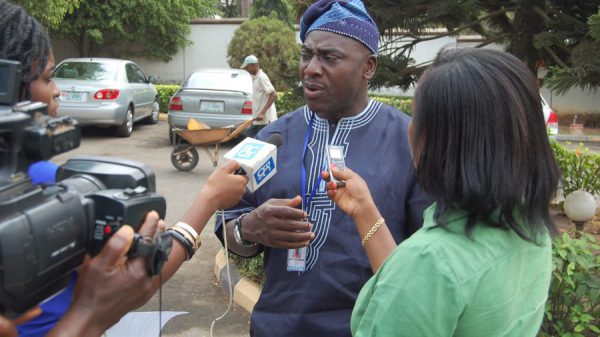A reliable source grants you an interview but denies speaking to you when your report is published. Kelechi Amakoh writes on the experiences of some journalists who found themselves in this embarrassing situation.
Some say journalism is history compiled in a hurry, while others say journalism projects every side of the society that is able to draw the public’s attention. In all, journalists thrive because of the availability of sources to give life to their stories.
In J-School, students are taught the importance of attribution and quotations in a journalistic piece. A foremost Nigerian journalism professor once noted that: “Sources are to reporters, what patients are to doctors.” As such, sources are important.
However, what do you do in a situation where your source denies ever granting you an interview or saying all that has been attributed to him? No reporter ever prays to be in such a dilemma. Such days are always the longest days in their lives. Publishers, editors and even the public will lay the reporter on the slaughter slab ready for sacrifice.
In his Facebook post, Nigerian journalist, Wale Fatade recounted his experience as The Guardian on Saturday reporter in 1997. In his account, he recalled how a source denied ever granting him an interview but for an understanding editor and his micro cassette, he would have lost his job.
Hear him: “I’ve always wondered what could have happened if I did not record the interview, most likely that could have been the end of my journalism career. I would always be grateful to my editor too who stood up for me even when others were not sure. Till date I’ve all the tapes of interview conducted in the course of my duties as a journalist.”
Here are some of the experiences shared on the post by journalists:
Musikilu Mojeed: Thanks a lot Wale Fatade. I was not as lucky as you. In 2004, I interviewed a subject on telephone in the course of a story. When the story was published in TELL, he denied ever speaking to me. The interview was not recorded as my antennae-wielding Trium telephone set lacked the capacity to do so.
I took generous notes which I submitted as part of my response to a query issued to me by Ibim Semenitari. She was head of our newsroom at the time and our Managing Editor, Onome Osifo-Whiskey, directed her to query me. My response did not impress Mr. Osifo-Whiskey. And so I was fired! I left after delivering a memo to all directors – including Dare Babarinsa – affirming my innocence and telling them my sack was God’s way of lifting me and pushing me forward.
A week later, I was hired by The Punch. Mr. Osifo-Whiskey later realised his mistake and has since apologised to me. In fact, after NEXT (where I was investigative editor) collapsed in 2011, he offered me an opportunity to return to TELL. I politely declined. Looking back, I think God simply used him to push my career in a different direction. This story will be told in detail in future, God willing.
Festus Owete: Interesting story. I had a similar experience in 2005 when I interviewed the Chairman of the defunct CONFAB, late Justice Niki Tobi, for the Punch. The man denied ever saying what I reported. Luckily, I did not delete that part of the interview from the cassette. The following day Punch declared “We stand by our story.”
Ismail Omipidan: Editor Sir, the experience was similar to the one I had in 2004. The difference was that mine was a group interview, where the then governor boasted that he had 76 jeeps before becoming governor. I was the only one who saw that angle. Once the story was published, the governor came under heavy attack. Next thing, they plotted to discredit me. Some of our colleagues caved in, as they retrieved the few recorders that were used during the interview session. My own tape disappeared mysteriously. But I was able to record from another colleague before his was surrendered. When some of his aides called to say their boss never said what The Sun published, I reminded them I still had the tape. That was the end of the story.
To avoid denial by your source, here are five things you can do to avoid being in this situation:
1. Record, Record, Record: Yes, this is one sure proof that you ever had an interview with your source. During on the record interviews, please ensure you are armed with working recorders and reporters’ diary. It helps.
2. Keep records: When the story is filed, don’t delete that record. Keep it. It might be your saving grace soon. You never can tell.
3. Never make up quotes: In the heat of the moment, reporters might be tempted to make up quotes for their stories in order to beat deadlines. As tempting as it is, don’t consider the option.
4. Put your editor in the know: It is advisable to inform your editor on encounters on the field. It saves a lot.
5. Don’t be cowed, state the truth: In the face of denial by your source, never be cowed. State the truth and leave it to fate.


